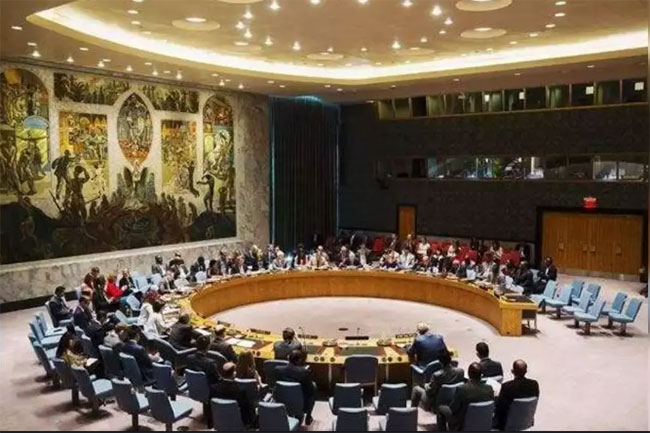Russia and China have been elected to the UN human rights council for the next three years, but Saudi Arabia failed in its attempt to win a place on the 47-seat body.
The result is a severe blow to the country’s efforts to improve its image in the wake of the admitted killing of the Saudi citizen and Washington Post reporter Jamal Khashoggi.
Pakistan and Cuba were also elected in the secret ballot on Tuesday conducted at the UN headquarters in New York to fill 15 vacant seats, which are distributed between five regions. France and the UK were elected unopposed to represent Europe.
The vote largely works by countries within regions reaching private bargains on the nation states that will stand – often with the aim of ensuring that all the candidates stand unopposed within their region.
All 193 UN countries can vote in each region.
The only contested region in the 2020 elections was the Asia-Pacific, where China and Saudi Arabia were in a five-way race with Pakistan, Uzbekistan and Nepal for four seats. China attracted 139 votes, down from the last time it stood for a seat in 2016 when it gained 180.
Saudi Arabia, the current chair of the G20, came fifth with just 90 votes, beaten by Nepal with 150.
Sarah Leah Whitson, executive director of Democracy for the Arab World Now (DAWN), the organisation founded by Jamal Khashoggi, said: “It is telling just how badly crown prince Mohammed bin Salman has damaged his country’s global standing for Saudi to lose its election to the UN human rights council while China and Russia managed to win seats. Despite the hundreds of millions of dollars he has spent on public relations stunts to cover his grotesque abuses, the international community just isn’t buying it.”
The UK shadow foreign secretary, Lisa Nandy, pressed the foreign secretary, Dominic Raab, to publicly state that the UK would not be supporting China. He declined to do so, arguing that the normal practice, followed by previous Labour and Conservative governments, is not to reveal how the UK had voted or if it had abstained.
The Saudi’s defeat followed intensive last-minute lobbying from human rights organisations which warned that the body’s credibility would be at stake if Saudi Arabia, Russia and China were all elected given their recent histories.
The Russian state has in recent weeks been accused of using a military grade nerve agent to poison opposition leader Alexander Navalny. Saudi Arabia has admitted that government officials dismembered Khashoggi in the Saudi consulate in Istanbul two years ago.
China stands accused of sending hundreds of thousands of Uighur Muslims into state re-education camps in Xinjiang province.
Before the vote, Louis Charbonneau, the UN director at Human Rights Watch, said: “Uncompetitive UN votes like this one make a mockery of the word ‘election’. Regional slates should be competitive so states have a choice. When there’s no choice, countries should refuse to vote for unfit candidates.”
Each nation state sitting on the council is charged with promoting and protecting human rights. Candidates are asked to publish statements to fellow UN members setting out their human rights qualification.
In its statement Saudi Arabia admits it places “legal restrictions on freedom of opinion and expression in order to protect public order, national security, public morals and health, and the rights or reputation of others. Mass media, publishers and all other vehicles of expression shall employ civil and polite language, comply with the laws of the state, contribute to the education of the nation and promote unity.”
It makes no mention of the female activists in jail for campaigning for the right to drive, or other Saudi members of the royal family held without access to their family or lawyers.
The Russian statement claimed “the promotion and protection of human rights is an absolute priority of the foreign policy of the Russian Federation”.
It also promised “to counter attempts to use human rights protection as a tool for exerting political pressure and interfering in the internal affairs of states, including with a view to their destabilisation and the replacement of legitimate governments”.
China in its statement placed heavy emphasis on economic emancipation, but said it “guarantees the freedom of all ethnic groups to use and develop their own spoken and written languages”.
The statement added: “There is always room for improving human rights. There is no universally applicable model, and human rights can advance only in the context of national conditions and people’s needs.”
Source: The Guardian
















